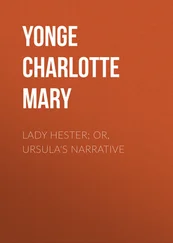Charlotte Yonge - Cameos from English History, from Rollo to Edward II
Здесь есть возможность читать онлайн «Charlotte Yonge - Cameos from English History, from Rollo to Edward II» — ознакомительный отрывок электронной книги совершенно бесплатно, а после прочтения отрывка купить полную версию. В некоторых случаях можно слушать аудио, скачать через торрент в формате fb2 и присутствует краткое содержание. Жанр: foreign_humor, Юмористические книги, literature_19, foreign_antique, на английском языке. Описание произведения, (предисловие) а так же отзывы посетителей доступны на портале библиотеки ЛибКат.
- Название:Cameos from English History, from Rollo to Edward II
- Автор:
- Жанр:
- Год:неизвестен
- ISBN:нет данных
- Рейтинг книги:4 / 5. Голосов: 1
-
Избранное:Добавить в избранное
- Отзывы:
-
Ваша оценка:
- 80
- 1
- 2
- 3
- 4
- 5
Cameos from English History, from Rollo to Edward II: краткое содержание, описание и аннотация
Предлагаем к чтению аннотацию, описание, краткое содержание или предисловие (зависит от того, что написал сам автор книги «Cameos from English History, from Rollo to Edward II»). Если вы не нашли необходимую информацию о книге — напишите в комментариях, мы постараемся отыскать её.
Cameos from English History, from Rollo to Edward II — читать онлайн ознакомительный отрывок
Ниже представлен текст книги, разбитый по страницам. Система сохранения места последней прочитанной страницы, позволяет с удобством читать онлайн бесплатно книгу «Cameos from English History, from Rollo to Edward II», без необходимости каждый раз заново искать на чём Вы остановились. Поставьте закладку, и сможете в любой момент перейти на страницу, на которой закончили чтение.
Интервал:
Закладка:
Wulstan took no part in what we should call politics; he thought it his duty to render his submission to the King whom the people had chosen, and to strive only to amend the life of the men of the country. He was in high favor with Harold during his short reign, and was for some time at court, where the fine Saxon gentlemen learnt to dread the neighborhood of the old Bishop; for Wulstan considered their luxury as worthy of blame, and especially attacked their long flowing hair. If any of them placed their heads within, his reach, he would crop off “the first-fruits of their curls” with his own little knife, enjoining them to have the rest cut off; and yet, if Wulstan saw the children of the choir with their dress disordered, he would smooth it with his own hands, and when told the condescension did not become a Bishop, made answer, “He that is greatest among you shall be your servant.”
Aldred, Wulstan’s former Bishop, now Archbishop of York, was the anointer of both Harold and William the Conqueror. He kept fair with the Normans as long as he could, but at last, driven to extremity by the miseries they inflicted on his unhappy diocese, he went to William arrayed in his full episcopal robes, solemnly revoked his coronation blessing, denounced a curse on him and his race, and then, returning to York, there died of grief.
Eghelwin, Bishop of Durham, gave good advice to Comyn, the Norman Earl, but it was unheeded, and the townsmen rose in the night and burnt Comyn to death, with all his followers, as they lay overcome with wine and sleep in the plundered houses. The rising of the northern counties followed, and Eghelwin was so far involved in it, that he was obliged to fly. He took shelter in the Camp of Refuge, was made prisoner when it was betrayed, and spent the rest of his life in one of William’s prisons.
Our good Wulstan had a happier lot, and spent his time in his own round of quiet duties in his diocese, binding up the wounds inflicted by the cruel oppressors, but exhorting the Saxons to bear them patiently, and see in them the chastisement of their own crimes. “It is the scourge of God that ye are suffering,” he said; and when they replied that they had never been half so bad as the Normans, he said, “God is using their wickedness to punish your evil deserts, as the devil, of his own evil will, yet by God’s righteous will, punishes those with whom he suffers. Do ye, when ye are angry, care what becomes of the staff wherewith ye strike?”
He had his own share of troubles and anxieties, but he met them in his trustful spirit, and straight-forward way. At Easter, 1070, a council was held at Winchester, at which he was summoned to attend. He was one of the five last Saxon Bishops; Stigand, who held both at once the primacy and the see of Winchester; his brother, Eghelmar, Bishop of Elmham; Eghelsie, of Selsey; and the Bishop of Durham, Eghelwin, who was in the Camp of Refuge.
Two cardinals were present to represent the Pope, and on account of his simony, Stigand was deposed and imprisoned, while Eghelric and Eghelmar were also degraded. Yet Wulstan, clear of conscience, and certain of the validity of his own election, was not affrighted; so far from it, he boldly called on the King to restore some lands that Aldred of York had kept back from the see of Worcester.
Thomas, Aldred’s successor, claimed them by a pretended jurisdiction over Worcester, and the decision was put off for a court of the great men of the realm, which did not take place till several fresh appointments had been made. Lanfranc, the Italian, Abbot of Bec, had become Archbishop of Canterbury, and was, of course, interested in guarding the jurisdiction of the Archiepiscopal see.
Wulstan, in this critical time, was exactly like himself. He fell asleep while Thomas was arguing, and when time was given him to think of his answer, he spent it in singing the service of the hour, though his priests were in terror lest they should be ridiculed for it. “Know you not,” he answered, “that the Lord hath said, ‘When ye stand before king and rulers, take no thought what ye shall speak, for it shall be given you in that hour what ye shall speak.’ Our Lord can give me speech to-day to defend my right, and overthrow their might.” Accordingly, his honest statement prevailed, and he gained his cause.
There is a beautiful legend that Lanfranc, thinking the simple old Saxon too rude and ignorant for his office, summoned him to a synod at Westminster, and there called on him to deliver up his pastoral staff and ring. Wulstan rose, and said he had known from the first that he was not worthy of his dignity, and had taken it only at the bidding of his master, King Edward. To him, therefore, who gave the staff, he would resign it. Advancing to the Confessor’s tomb, he said, “Master, thou knowest how unwillingly I took this office, forced to it by thee. Behold a new king—a new law—a new primate; they decree new rights, and promulgate new statutes. Thee they accuse of error in having so commanded—me of presumption, in having obeyed. Then, indeed, thou wast liable to err, being mortal—now, being with God, thou canst not err. Not to these who require what they did not give, but to thee, who hast given, I render up my staff. Take this, my master, and deliver it to whom thou wilt.”
He laid it on the tomb, took off his episcopal robes, and sat down among the monks. The legend goes on to say, that the staff remained embedded in the stone, and no hand could wrench it away, till Wulstan himself again took it up, when it yielded without effort. The King and Archbishop fell down at his feet, and entreated his pardon and blessing.
Such is the story told a century after; and surely we may believe that, without the miracle, the old man’s touching appeal to his dead King, and his humility, convinced Lanfranc that it had been foul shame to think of deposing such a man because his learning was not extensive, nor his manners like those of the courtly Norman. Be that as it may, thenceforth Lanfranc and Wulstan worked hand in hand, and we find the Archbishop begging him to undertake the visitation of the diocese of Chester, which was unsafe for the Norman prelates. One great work accomplished by the help of Wulstan was, the putting an end to a horrible slave-trade with Ireland, whither Saxon serfs were sold, not by Normans, but by their own country people, who had long carried it on before the Conquest. Lanfranc persuaded William to abolish it, but the rude Saxon slave-merchants cared nothing for his edicts, until the Bishop of Worcester came to Bristol, and preached against the traffic, staying a month or two at a time, every year, till the minds of the people of Bristol were so altered, that they not only gave up the trade, but acquired such a horror of it that they tore out the eyes of the last person who persisted in it.
The favor and esteem with which Wulstan was regarded did not cease, but he was obliged to spend a life of constraint. The Archbishop made him keep a band of armed retainers to preserve the peace of the country, and they were new and strange companions for the old monk; but as he thought his presence kept them from evil, he did not remain aloof, dining with them each day in the public hall, and even while they sat long over the wine, remaining with them, pledging them good-humoredly in a little cup, which he pretended to taste, and ruminating on the Psalms in the midst of their noisy mirth.
These were the days of church-building—the days of the circular arch, round column, and zigzag moulding; of doorways whose round arch, adorned with border after border of rich or quaint device, almost bewilder us with the multiplicity of detail; of low square towers, and solid walls; of that kind of architecture called Norman, but more properly a branch of the Romanesque of Italy.
Each new Roman Bishop or Abbot thought it his business to renew his clumsy old Saxon minster, and we have few cathedrals whose present structure does not date from the days of the Conqueror or his sons. Walkelyn, Bishop of Winchester, obtained a grant from William of as much timber from Hempage Wood as could be cut in four days and nights; whereupon Walkelyn assembled a huge company of workmen, and made such good use of the time, that when the king passed that way, he cried out, “Am I bewitched, or have I taken leave of my senses? Had I not a most delectable wood in this spot?” where now only stumps were to be seen.
Читать дальшеИнтервал:
Закладка:
Похожие книги на «Cameos from English History, from Rollo to Edward II»
Представляем Вашему вниманию похожие книги на «Cameos from English History, from Rollo to Edward II» списком для выбора. Мы отобрали схожую по названию и смыслу литературу в надежде предоставить читателям больше вариантов отыскать новые, интересные, ещё непрочитанные произведения.
Обсуждение, отзывы о книге «Cameos from English History, from Rollo to Edward II» и просто собственные мнения читателей. Оставьте ваши комментарии, напишите, что Вы думаете о произведении, его смысле или главных героях. Укажите что конкретно понравилось, а что нет, и почему Вы так считаете.












